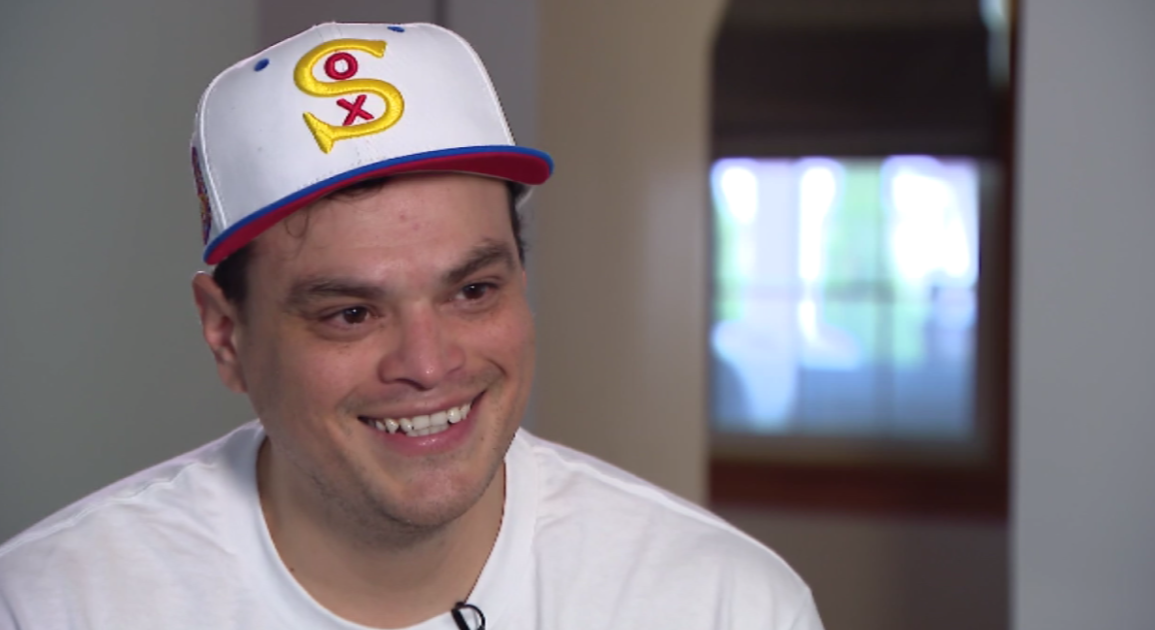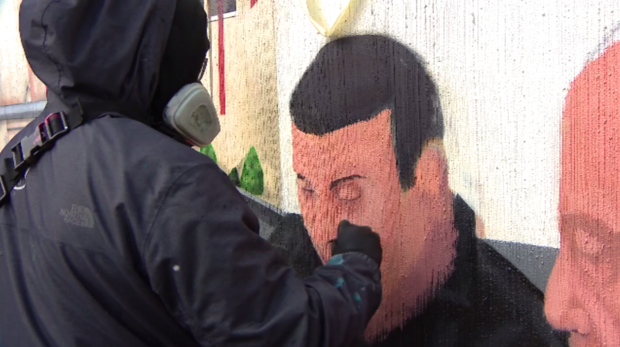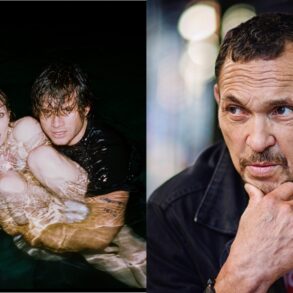CHICAGO (CBS) – What began as graffiti under train tracks turned into a blossoming career for one Chicago man.
He truly turned adversity into triumph, and now he’s helping others do the same.
Graffiti could evoke a number of reactions, from fascination to frustration to fear. Epifanio Monarrez feels a childlike freedom that guided his future.
“It would take me to a different realm almost,” said Monarrez. “Like I was completely disconnected from whatever was happening in my life at the moment.”
Life began in Little Village, where the art in comic books captured him, but for kids looking to create like him, there seemed to be only one way.
CBS
“I wasn’t able to take any art classes at that age, but graffiti was an artistic outlet that was free, so that’s kind of the path that I took,” he said.
Monarrez said he picked up his first can of spray paint at 10 years old. He followed the big kids who encouraged him. He spent those school years immersed in making his mark.
Reporter: “Did you guys ever get in trouble?”
Monarrez: “Many times.”
That made his parents desperate for him to find another hobby.
“One day, I got in trouble, and then my parents a day later found all the spray cans, and they all disappeared,” he said. “So my brother and my friends and I went around the neighborhood looking in all the garbage cans. We never found anything.”
With time and a little more maturity, Monarrez came to realize his talent that started on the streets of Little Village could take him beyond it.
“After that, I started understanding that digital design is where it’s at because that’s what’s going to allow me to have a career,” he said.
He studied illustration at Columbia College Chicago, which set him up to get a job right after graduation where his creative vision could be seen and heard. At least, that’s what he was promised. He rarely found it to be true.
“I would often go from one agency to another and hit glass ceilings, and I would have really uncomfortable conversations sometimes with some of the clients and people just because of the way they would see me because I was a person of color,” Monarrez said.
That “street style” is what made him stand out, and he knew it. So he formed his own company, seeking design and promotional work in the neighborhood that knows him best.
In his work with the iconic Little Village restaurant Los Comales, he found a way to mix his marketing smarts and art.
“He is a visionary,” said Christina Gonzales, co-owner of Los Comales, adding, “You can talk to him, and you can see the wheels are turning.”
CBS
And other brands have noticed, too. He’s done work for Rolex and Tacori. He showcased his art on everything from ads to cups to skateboards and even furniture, which have been featured on the national stage. He showed CBS 2 one of the chairs he designed for the NCAA.
It’d be easy for Monarrez to stay focused on the fruitful projects in front of him, but he’s also looking back to where he started. He aims to use his company to help the neighborhood artists who are making their own careers like he was once.
“I want to create the same kind of opportunities that I’ve had for other graffiti artists or other artists that have the skillset but don’t have an agency backing them up to do big projects,” he said.
From spray painting alleyways to an agency of his own, a childhood dream is still shaping Monarrez’s career.
Reporter: “What do you think 7-year-old Epi thinks about you now?”
Monarrez: “I think the 7-year-old version of me would be extremely proud of where I’ve gotten, just because I had a lot of challenges as a kid so I feel really blessed.”
Years after throwing out all those cans of spray paint, Monarrez’s mom said she now understands what her son does and she’s very proud of him.
This post was originally published on this site be sure to check out more of their content.












